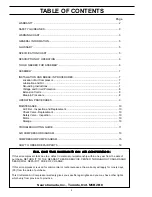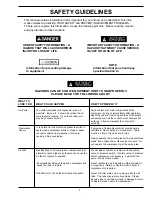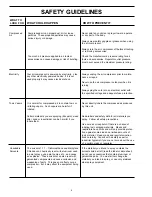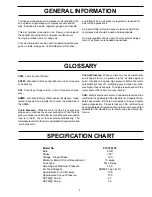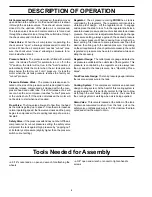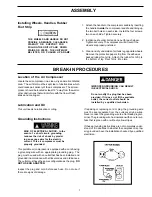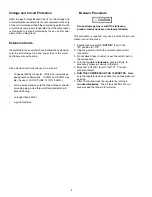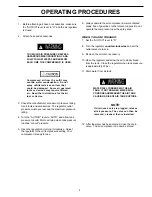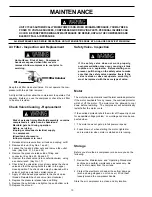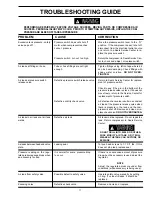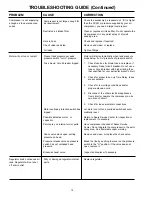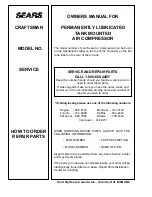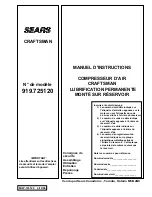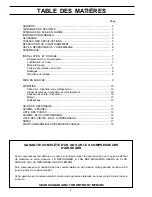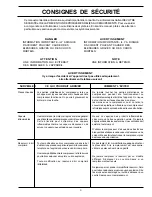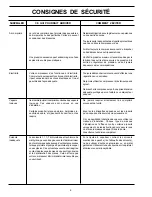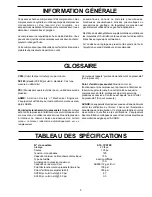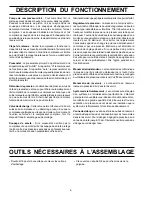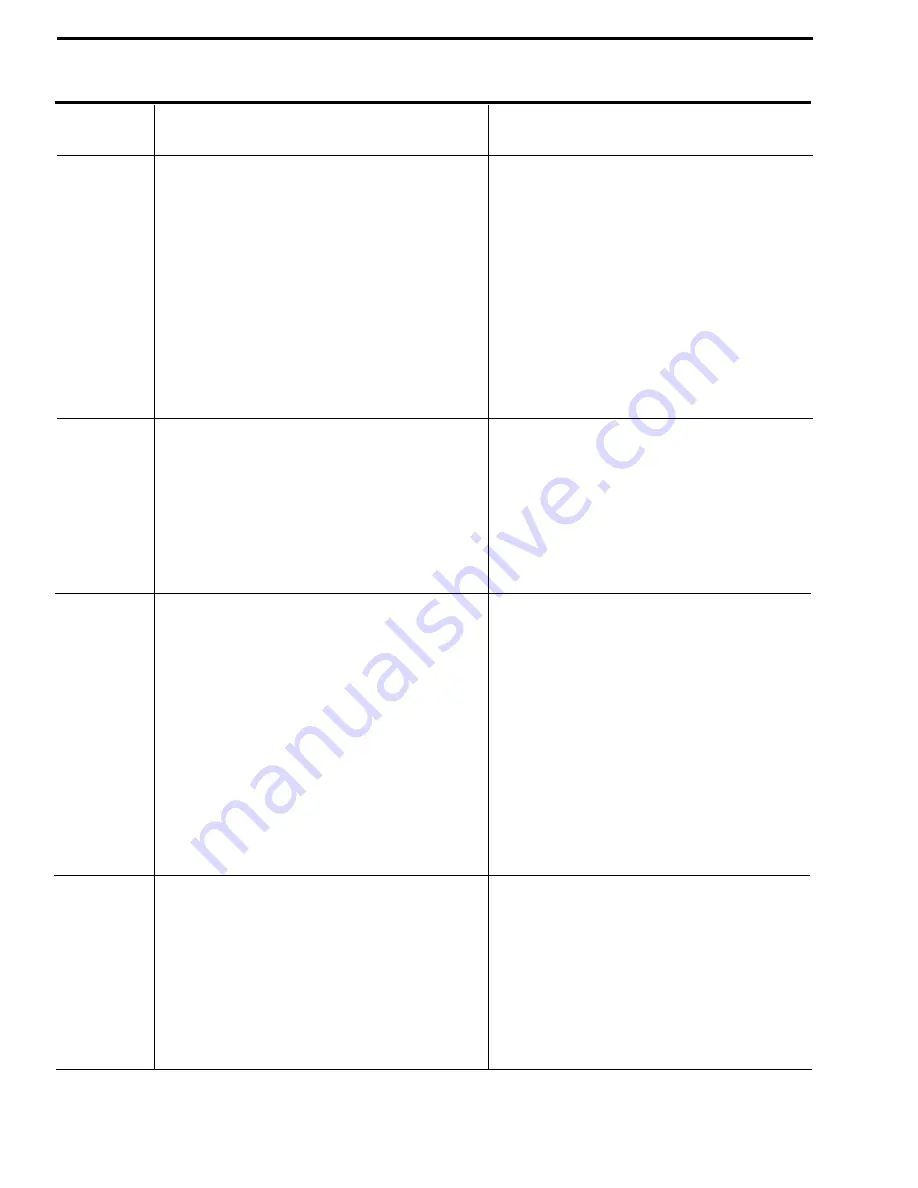
4
SAFETY GUIDELINES
WHAT TO
LOOK FOR
Compressed air can propel dust, dirt or loose
particles. These propelled particles may cause
serious injury or damage.
WHAT COULD HAPPEN
HOW TO PREVENT IT
Too much air pressure applied to air tools or
accessories can cause damage or risk of bursting.
Compressed
Air
Your air compressor is powered by electricity. Like
any other electrically powered device, if it is not
used properly it may cause electrical shock.
Always unplug the air compressor prior to mainte-
nance or repair.
Never use the air compressor outdoors when it is
raining.
Always plug the cord into an electrical outlet with
the specified voltage and adequate fuse protection.
The solvents 1,1,1 - Trichloroethane and Methylene
Chloride can chemically react with aluminum used
in paint spray guns, paint pumps, etc., and cause
an explosion. These solvents can also react with
galvanized components and cause corrosion and
weakening of parts. This does not affect your air
compressor - but it may affect the equipment being
used.
If the material you intend to spray contains the
solvents listed at left (read the label or data sheet),
do not use accessories that contain aluminum or
galvanized parts. You must either change the
material you intend to spray, or use only stainless
steel spray equipment.
Certain materials you are spraying (like paint, weed
killer, sand or insecticide) can be harmful if you
inhale them.
Unsuitable
Solvents
It is normal for compressed air to contain toxic or
irritating vapors. Such vapors are harmful if
inhaled.
Toxic Vapors
Electricity
Never directly inhale the compressed air produced
by this unit.
Read labels and safety data for all materials you
spray. Follow all safety precautions.
Use a mask or respirator if there is a chance of
inhaling toxic sprayed materials. Masks and
respirators have limits and will only provide protec-
tion against some kinds and limited amounts of
toxic material. Read mask and respirator instruc-
tions carefully. Consult with a safety expert or
industrial hygienist if you are not sure about the use
of a certain mask or respirator.
Check the manufacturer’s pressure rating for air
tools and accessories. Regulator outlet pressure
must never exceed the maximum pressure rating.
Never point any nozzle or sprayer toward a person
or any part of the body.
Always wear safety goggles or glasses when using
the air compressor.
Always turn the air compressor off before attaching
or removing accessories.


